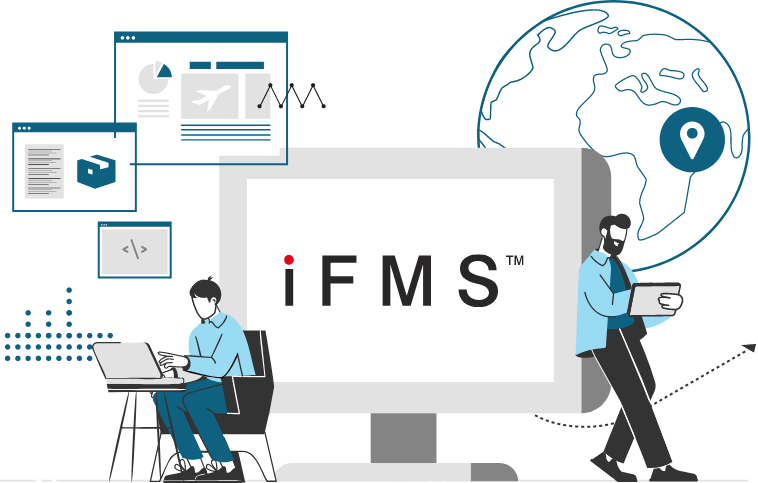ACCOUNTING
Best Practices and Challenges for Freight Accounting
Freight accounting, a critical component of logistics management, involves meticulous tracking and management of transportation-related expenses. This practice ensures precise financial reporting, aids in strategic planning, and maintains regulatory compliance. However, navigating this intricate process presents challenges. Here, we delve into best practices and common challenges in freight accounting, providing valuable insights and advice for industry professionals.
May 28th, 2024
|
3 Minute Read

Best Practices for Freight Accounting
Automate Data Entry and Reporting in Freight Accounting:
- – Utilize Advanced Software: Implementation of cutting-edge freight accounting software can revolutionize your operations by minimizing manual data entry, thus reducing errors and saving valuable time. These automated systems are adept at efficiently handling large volumes of invoices and expenses, ensuring financial records remain accurate and up-to-date. Additionally, they can provide valuable insights through analytics and reporting features.
- – System Integration: Ensure seamless integration of your accounting software with other vital logistics management systems, such as Transportation Management Systems (TMS) and Warehouse Management Systems (WMS). This integration fosters real-time data flow and enables comprehensive reporting, empowering informed decision-making. Moreover, integrated systems enhance collaboration and streamline processes across the supply chain.
Centralize Freight Financial Data:
- – Unified Data Management: Opt for a centralized platform to manage all freight-related financial data. Centralization enhances data consistency and accessibility, facilitating better decision-making processes and quicker reconciliation of discrepancies. Centralizing data also improves data security by reducing the risk of data silos and unauthorized access.
- – Cloud-Based Solutions: Consider leveraging cloud-based accounting solutions to enjoy benefits such as scalability, remote accessibility, and enhanced data security. Cloud-based platforms provide flexibility and agility in managing financial data, crucial for modern businesses. Furthermore, cloud-based solutions offer automatic backups and disaster recovery capabilities, ensuring business continuity in case of unforeseen events.
Implement Robust Reporting Mechanisms:
- – Scheduled Reviews: Conduct periodic audits and reconciliations to ensure accurate recording of all transactions. Regular checks are instrumental in identifying and rectifying errors promptly, thereby maintaining the integrity of financial records. Additionally, regular reviews help identify trends and opportunities for process improvement.
- – Audit Trails: Maintain detailed audit trails for all transactions, enabling easy tracking and verification during audits. Comprehensive audit trails are indispensable for ensuring transparency and compliance with regulatory requirements. They also serve as valuable documentation for internal analysis and external audits.
Leverage Technology for Compliance:
- – Compliance Automation Tools: Employ freight accounting software equipped with compliance features to stay abreast of regulatory requirements. These tools automate the submission of necessary filings and track regulatory changes, ensuring compliance with evolving standards. Furthermore, compliance automation reduces the burden on staff and minimizes the risk of human error.
- – Monitor Regulations: Stay vigilant about changes in international shipping regulations and update your systems accordingly to avoid compliance issues. Proactive monitoring of regulatory developments is essential for mitigating compliance risks and maintaining business continuity. Subscribing to regulatory alerts and participating in industry forums can help stay informed about regulatory changes.
Implement Robust Reporting Mechanisms:
- – Comprehensive Reporting: Develop robust reporting mechanisms that offer insights into various aspects of freight management, including costs, carrier performance, and overall logistics efficiency. Detailed reports facilitate strategic planning and optimization of costs. Moreover, customizable reporting allows stakeholders to access relevant information tailored to their needs.
- – Custom Dashboards: Utilize custom dashboards to monitor key performance indicators (KPIs) and generate real-time financial reports. Customized dashboards enable proactive decision-making by providing quick access to critical information. Additionally, interactive dashboards allow users to drill down into data for deeper insights and analysis.
Challenges in Freight Accounting
Complex Regulatory Environment
- – Navigating Regulations: The regulatory landscape governing international freight is intricate and constantly evolving. Compliance with diverse customs and tax regulations necessitates meticulous record-keeping and frequent updates to accounting practices. Engaging legal counsel or regulatory experts can provide guidance on navigating complex regulations.
- – Avoiding Penalties: Non-compliance with regulatory requirements can result in significant penalties. Therefore, staying informed about regulatory changes and leveraging software tools for compliance is imperative for mitigating compliance risks. Conducting periodic compliance audits can help identify gaps and ensure adherence to regulations.
Accounting Data Management Issues:
- – Data Integration: Managing and integrating data from multiple sources, including carriers, warehouses, and customers, poses challenges due to varying data formats and potential discrepancies. Implementing data standardization protocols and investing in data quality tools can improve data consistency and accuracy.
- – Ensuring Accuracy: Ensuring the accuracy of data from disparate systems requires robust validation processes and regular updates to maintain data integrity. Establishing data governance policies and conducting data quality assessments can help identify and address inaccuracies in data.
Freight Cost Allocation Difficulties:
- – Accurate Allocation: Accurately allocating costs to specific shipments or customers, particularly in shared or consolidated loads, is complex and critical for profitability analysis and pricing strategies. Leveraging advanced cost allocation methodologies, such as activity-based costing, can provide more accurate insights into cost drivers.
- – Transparent Costing: Providing transparent cost breakdowns to clients fosters trust and enhances relationships, necessitating precise cost tracking and allocation methods. Offering detailed cost reports and engaging in transparent communication with clients can help build long-term partnerships based on trust and transparency..
Technological Integration in Freight Accounting:
- – System Compatibility: Integrating various technological systems used across the logistics chain is challenging, requiring careful planning and execution to ensure compatibility and seamless data flow between systems. Investing in middleware solutions and standardized data formats can facilitate smoother integration between disparate systems.
- – Ongoing Support: Continuous training for staff on new systems and ensuring ongoing technical support enhance the effectiveness of technological integration, maximizing operational efficiency. Establishing a dedicated support team and providing regular training sessions can help users adapt to new technologies and maximize their benefits.
Handling Freight Accounting Disputes and Chargebacks:
- – Efficient Resolution: Efficiently managing disputes over freight charges and handling chargebacks is crucial for maintaining healthy cash flow and customer relationships. Implementing clear dispute resolution policies and establishing dedicated escalation procedures can expedite the resolution process and minimize disruptions to operations.
- – Detailed Documentation: Keeping detailed and accurate documentation for all transactions facilitates quick and effective resolution of disputes, minimizing disruptions to operations. Implementing document management systems and maintaining organized records can streamline the retrieval of relevant information during dispute resolution processes.
Conclusion
By embracing these best practices and proactively addressing common challenges, businesses can streamline their freight accounting processes, thereby improving financial management and operational efficiency. Additionally, by leveraging advanced software solutions and staying informed about regulatory changes, organizations can take pivotal steps toward achieving these objectives. With a robust framework in place, they can confidently navigate the complexities of freight accounting, ultimately driving sustainable growth and profitability.

SUBSCRIBE TO OUR NEWSLETTER!
Read Next
-
Are You Making These Common Freight Forwarding Mistakes?
In the fast-paced world of freight forwarding, efficiency and accuracy…
-
Supreme Court Empowers Carriers: New Regulatory Realities
On June 28, 2024, the U.S. Supreme Court delivered a…
-
Maritime Shipping Still Struggles: Ocean Rates Soar
Effective freight management is crucial for ensuring that businesses can…
-
A Comprehensive Guide to Freight Accounting
Effective freight management is crucial for ensuring that businesses can…
-
Rising Container Shipping Rates: US Demand & Red Sea Issues
The global shipping industry is grappling with soaring container rates…
-
Panama Canal Averts Crisis Through Water Strategy
The Panama Canal recently avoided a potential shipping crisis through…
-
Crucial Role of Freight Forwarding in Supply Chain Management
Efficient supply chain management is essential for the success of…
-
Best Practices and Challenges for Freight Accounting
Freight accounting is a crucial aspect of logistics management, involving…
JOIN OUR MAIL LIST FOR EXCLUSIVE ACCESS TO
LATEST NEWS, TIPS, AND RESOURCES
Your privacy matters! Suntek only uses this info to send content and updates. You may unsubscribe anytime. View our privacy policy for more.












